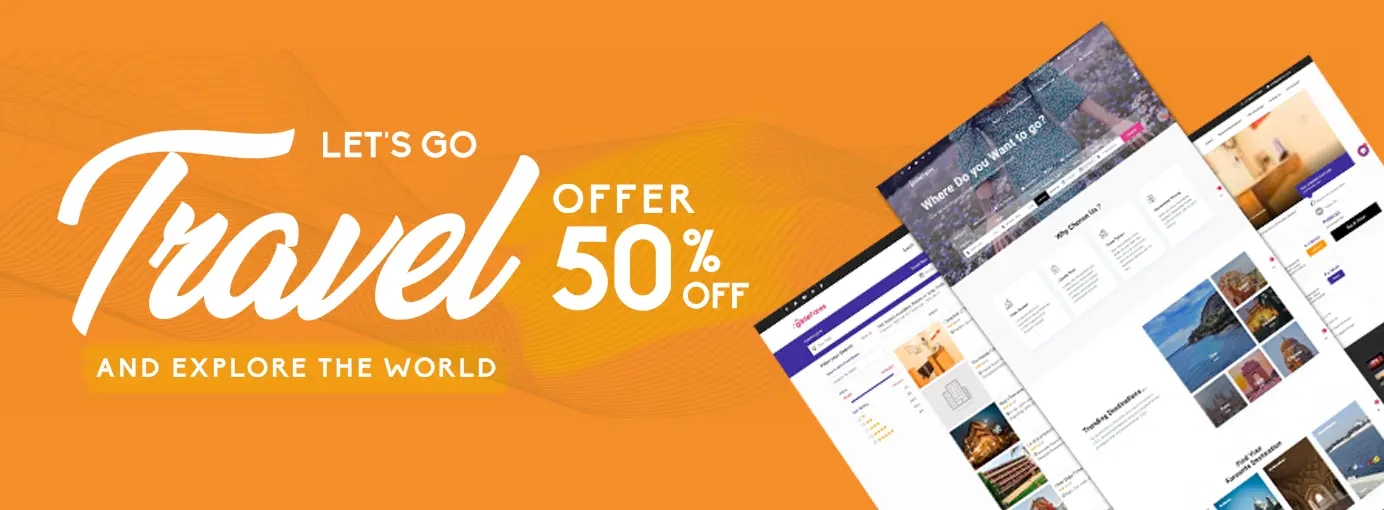Ready to go-LIVE travel solutions that helps your travel agency to sell a range of travel services pretty instantly. adivaha® travel solutions make sure you have no boundation over your imagination, you can do everything online, without the need for any technical knowledge or design skills. Easy Backoffice, extensive reporting with integrated Funds Management System.
Ultimate Guide: User-Centric Travel Booking UX Best Practices

Merging user and travel experience best UX practices for booking and reservation websites is crucial in today's competitive online travel market. Ensuring that users have a seamless and enjoyable experience from start to finish is essential for the success of both B2C travel websites and B2B system integration. From the moment a user lands on the website, the design and functionality should reflect a deep understanding of both the user's needs and the travel industry's specific requirements.
To achieve this, booking and reservation websites must prioritize user-centric design elements. This includes intuitive navigation, clear and concise information presentation, and easy-to-use booking systems. By merging the user and travel experience seamlessly, websites can create a sense of trust and reliability among visitors. In B2C travel websites, focusing on personalization and customization can significantly enhance the user journey. Tailoring recommendations based on user preferences and past behavior can lead to increased bookings and customer satisfaction.
On the other hand, b2b system integration requires a different approach. Ensuring that the booking and reservation systems communicate effectively with backend processes is essential. Seamless data flow between different systems is vital for accurate inventory management and timely updates. Prioritizing real-time information exchange and automated processes can streamline operations for travel agencies and partners. By merging user and travel experience best UX practices in B2B integration, businesses can optimize workflows and provide a more efficient service to their clients, ultimately leading to increased productivity and profitability.
An integral part of modern travel planning is the online car rental booking system. As people seek convenience and flexibility in their journeys, the ability to book a rental car online has become a necessity. Online car rental booking systems allow travelers to efficiently compare options, select the best vehicles for their needs, and secure bookings with a few clicks. The convenience of these systems has made them a staple for travelers looking to explore new destinations with ease. Moreover, these systems provide a seamless way to manage transportation needs during trips, eliminating the hassle of searching for rentals upon arrival.
Online car rental booking systems are supported by some of the Best travel websites in the industry. These websites offer a wide selection of rental providers, vehicle types, and pricing options, making it easier for travelers to find the best deals. By partnering with reputable car rental companies, these travel websites ensure that customers have access to quality vehicles and reliable service. The integration of online car rental booking systems into these platforms has streamlined the travel planning process, allowing users to book their transportation alongside flights and accommodations. This integration has enhanced the overall travel experience, offering a one-stop solution for all travel-related needs.
Furthermore, the advancements in travel disruption management tech present significant opportunities in the travel industry. Online car rental booking systems, coupled with innovative disruption management technologies, help mitigate the impact of unforeseen events on travel plans. By offering flexible booking options, real-time updates, and instant customer support, these technologies enable travelers to navigate disruptions with minimal stress. The integration of disruption management tech into online car rental systems enhances the resilience of travel plans, ensuring that customers can adapt to changes quickly and efficiently. As the travel industry evolves, investing in disruption management technologies will be crucial for enhancing customer experience and building trust among travelers.
In the age of digitalization, online car rental booking systems have revolutionized the way people travel, providing convenience and efficiency in securing transportation. With platforms like online car rental booking systems, travelers can easily compare different options, view real-time availability, and book their preferred vehicle from the comfort of their homes. These systems offer a user-friendly interface, allowing customers to navigate through various car rental options quickly and effortlessly. They provide a seamless booking experience, making it an essential tool for modern travelers looking for convenience and flexibility in their transportation arrangements.
When it comes to finding the best travel websites to fulfill your wanderlust, user-centric travel booking UX best practices are key. The online car rental booking system plays a crucial role in providing a smooth and intuitive user experience, ensuring that travelers can easily access information, make bookings, and manage their reservations hassle-free. By focusing on user-centric design principles, travel websites can enhance customer satisfaction and loyalty, ultimately leading to increased traffic and revenue. Embracing best practices in UX design allows travel websites to stand out in a competitive market, attracting and retaining customers by offering a personalized and streamlined booking process.
travel disruption management tech opportunities in the travel industry are expanding, offering innovative solutions to address issues that travelers may encounter during their journeys. Online car rental booking systems equipped with advanced technology can help travelers navigate unforeseen disruptions, such as flight cancellations or delays, by providing flexible booking options and real-time updates. By leveraging technologies like AI and machine learning, travel companies can proactively manage disruptions and offer alternative travel arrangements, ensuring a smooth and seamless experience for their customers. Investing in travel disruption management tech not only improves customer satisfaction but also strengthens the resilience of the travel industry in the face of unexpected challenges.
